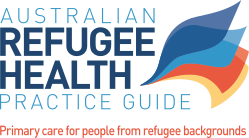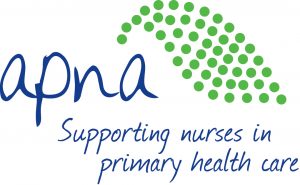Management of psychological effects of torture or other traumatic events
Table of contents
Overview
People from refugee backgrounds, including people seeking asylum, vary in their readiness to disclose previous trauma, and much depends on context, and the empathy, warmth and skill of the clinician. Talking about past experiences can may be psychologically beneficial in the right circumstances. However, the knowledge that the patient may have endured certain experiences due to their country of origin or transit is generally sufficient for you to orient your care.
Common psychological effects of torture or other traumatic events include a range of symptoms and behavioural effects. Some patients may suffer a mental health disorder, the most frequent being post-traumatic stress disorder, depressive disorder and anxiety disorders.1
Commonly occurring effects that may disrupt daily life include:
- intrusive and recurrent memories of traumatic events, flashbacks, nightmares, avoidance of reminders of traumatic events, detachment from others, numbing, hypervigilance, exaggerated startle response
- depression and grief
- guilt and shame
- distrust and anger, sensitivity to justice and injustice
- difficulties with memory and concentration
- interpersonal difficulties, including isolation
- impact on physical health from factors such as poor appetite and sleep issues.
Children and adolescents experience similar psychological reactions to trauma as adults, however, the clinical presentation reflects their age and development. Presentations may include behavioural issues, sleep concerns, attention difficulties, low self-esteem, friendship difficulties, enuresis, and developmental/education concerns, as well as symptoms of anxiety, depression and post-traumatic stress disorder (PTSD). Parent mental illness affects child wellbeing, and addressing both parent and child mental health is important.
Approach to care
More detail of someone’s experiences is often required to understand and manage the causes of persistent psychological and psychosomatic symptoms. Details of past traumatic experiences are best elicited if:
- a trusting relationship has developed
- there is adequate time for the patient to respond
- the patient feels comfortable with the professional interpreter, and their confidentiality has been assured.
Some useful questions include:
- ‘Some people have had bad things happen to themselves and their families. Has anything happened to you or your family that could be affecting your health or the way you are feeling now?’
- ‘When did the problem start? You do not need to tell me all the details, but can you tell me something of what was happening at the time?’
- ‘Do you have any other problems that we have not talked about that I can help you with today?’
Responding to a disclosure of torture or trauma
- Validate your patient’s reaction by acknowledging their experience (e.g. ‘That’s a terrible thing you have been through.’).
- Remind your patient that their reaction is a normal response to their circumstances, as often survivors blame themselves and see their reactions as abnormal or weak.
- Avoid false assurances. Nevertheless, indicate that with time and appropriate support, improvement can be achieved.
- Expect that the patient who has disclosed a traumatic event may be unwilling to talk about it in subsequent consultations. Rather than pushing them to do so, talk about other things that may be currently troubling them.
- Expect inconsistencies and/or fragmented accounts in the patient’s retelling of their trauma history.
- Explain to the patient how you are able to assist them.
Management
There is a consensus among practitioners experienced in caring for people from refugee backgrounds that optimum treatment of psychological problems involves non-pharmacological approaches either in addition to medication or as the primary treatment modality.2
Medication may be required to manage symptoms that are sufficiently severe that they interfere with the patient’s functioning.
When a patient presents with persistent symptoms believed to be related to trauma, consider referral to a psychiatrist, psychologist or the specialist service for survivors of trauma and torture in your state or territory
Each state and territory has a specialised torture and trauma counselling service for people from refugee backgrounds. These free and confidential services are non-denominational, politically neutral and non-aligned. For more information regarding specialist services for survivors of torture and trauma see Forum of Australian Services for Survivors of Torture and Trauma (FASSTT).
In some areas, counselling services through community health centres or mental health nurses may be available to assist the client and facilitate other referrals. See State and territory referrals.
Practice tips
- Explain to the patient your diagnosis or opinion of their condition, and the likely causes of the condition. The patient’s explanation for their problem is useful to enquire about.
- Be aware of the stigma attached to psychological conditions.
- Outline treatment options so that the patient is able to make a choice. Be specific about what the alternatives are.
- Arrange emergency psychiatric management in the usual way for patients at risk of serious mental health deterioration, suicide, and violence to others or self-harm.
- Ensure that professional interpreting services are available if required.
Considerations
Somatic complaints
It is not uncommon for patients from refugee backgrounds to somatise their psychological stress. Consider the following:
- Take presenting concerns seriously, and conduct appropriate examinations and investigations as needed. People from refugee backgrounds may have received inadequate health care and usually need explanations of investigations. See Approach to consultation and management.
- It may be helpful to discuss the relationship between the body and mind.
- If somatic symptoms persist and a link between such symptoms and emotional distress is made, consider a referral for counselling and support.
- Consider the trauma basis for symptoms and refer accordingly. Specialist services for survivors of trauma and torture are located in each state and territory. See State and territory referrals or FASSTT.
Mental health of people seeking asylum
The psychological implications of uncertain migration status
People seeking asylum face particular stresses owing to their uncertain migration status, limitations on their access to benefits and, in some cases, their experiences in immigration detention centres.3 Research indicates that people seeking asylum are vulnerable to being retraumatised and have particularly poor physical and mental health.4
Issues faced by people seeking asylum include:
- a limited capacity to plan for their future and develop stable social connections
- detention centre experiences that may compound a sense of injustice and loss of control, and serve as reminders of persecutory practices in countries of origin
- perceptions that they are not being believed by the Australian Government, or that they are being treated in a discriminatory fashion
- feelings of powerlessness resulting from the limited control over their lives
- exposure to unsympathetic or hostile attitudes in the media and the wider community
- no or uncertain access to family reunion provisions. See Asylum seekers.
- anxiety about the safety of loved ones still in dangerous circumstances overseas
- limitations on their access to the resources required for positive mental health (e.g. English language tuition, secure housing)
- stressors on families, including concern for wellbeing of children
- the need to overcome barriers to participation in the Protection Visa application process, such as poor mental health and effects of torture or other traumatic events.
See Asylum seekers, State and territory referrals.
Other resources
References
-
Turrini G, Purgato M, Ballette F, Nosè M, Ostuzzi G, Barbui C. Common mental disorders in asylum seekers and refugees: umbrella review of prevalence and intervention studies. International journal of mental health systems. 2017;11(1):51.
-
TBC.
-
Coffey GJ, Kaplan I, Sampson RC, Tucci MM. The meaning and mental health consequences of long-term immigration detention for people seeking asylum. Social science & medicine. 2010;70(12):2070-2079.
-
Silove D, Steel Z, Mollica RF. Detention of asylum seekers: assault on health, human rights, and social development. The Lancet. 2001;357(9266):1436-1437.




